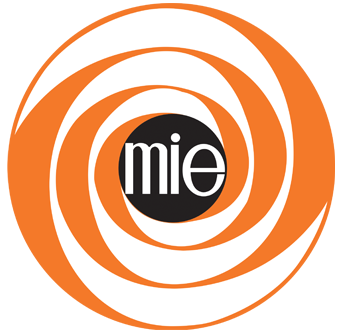Research Unit
The Research Unit (RU) was set up in 2009, following the recommendation of the first quality audit and this initiative has been commended in the second quality audit report.
The Research Unit, in line with the requirements of the MIE Strategic Plan, has the following objectives, to:
• harmonise structures and research priorities within the institution
• integrate research outcomes in teaching and curriculum development
• strengthen capacity of academics
As such, the Research Unit has an institution-wide agenda to
(i) develop the Institute’s research policy and drive its implementation;
(ii) promote educational research;
(iii) facilitate the engagement of staff in research activities by providing support and capacity-building, as well as allocating funds;
(iv) monitor the progress of research projects; and
(v) encourage research outcomes to be disseminated through publication.
The Unit is composed of eight members from the four Schools for the composition of the RU). It is supported by an administrative personnel.
Development of guiding documents to frame research activities
The Research Unit mobilises resources, undertakes research and promotes a wide range of research activities in the field of education. At the same time, in order to foster knowledge transfer and exchange within and outside the institution, the Research Unit has formulated its philosophical approach based on the principle of ‘Knowledge Transfer’, from research to policy and practice.
Thus, the Research Unit has elaborated three pathways to guide staff to explore research evidence: (i) for the improvement of our teacher education programmes, and eventually teaching and learning in schools (ii) to help address societal problems and, (iii) for policy consideration and decisions.
Enhancing research through postgraduate provisions
The Research Environment
The Post Graduate Research Conference in Education
The Post Graduate Research Conference in Education (PGRCE) is an annual event occurring during the Easter Break and aiming to offer a platform for researcher practitioners to disseminate the findings of their small scale research. The conference is an important part of the MA Education programme and is one of the key learning experiences that is planned to offer a space for students, who are at different stages of their research projects to interact and obtain feedback from peers and tutors. The PGRCE is a most visible expression of a community of practice coming together to analyse how a research perspective can encourage the move towards more evidence based practice.
The learning gains for each cohort is differently articulated although all cohorts participate and assume different roles.
A. The Master in Education Graduates use the Conference as a platform to communicate on one aspect of completed research to a varied audience, celebrate successful completion and demonstrate acquired knowledge and skills.
B. The Final Year students present work-in-progress at the Round table discussion held after paper presentations.
C. The First Year students prepare and discuss their poster in the Gallery Walk scheduled in between the paper presentations and the round table discussions.
Strategic international partnerships
We believe that there is opportunity for research in Mauritius to be broadened to address issues of interest in similar contexts and countries beyond our shores. We engage our peers from other institutions, both locally and internationally in capacity building which is evident in the ways in which the research unit has set itself to task. Our publications address issues that have received international recognition, at conferences worldwide and in international publications.
Our research on teacher education, culminating in a book was published by Common Grounds Publications (2016) in the USA. The book’s contribution to scholarship in the areas of teacher education and SIDS has been internationally recognised.
(click here to read more)
Another recent project being initiated by the MIE revolves around the issue of Brain-based Learning and poverty. It is also going to be a ground-breaking research that is being carried out in association with a Professor from Trinity College, Ireland, and a researcher from the medical field in the private sector in Mauritius. The interest of the University of Cape Town, South Africa, has also been expressed for collaboration in the data analysis phase of this project. We intend to extend it to include opportunities for master’s and doctoral research to engage in this project soon.
The MIE has a long-established partnership with the Université de la Réunion in the field of Teacher Education and Research. We have worked in collaboration to organise many international research seminars and workshops pertaining to a number of educational issues for the past twenty years, particularly with the ‘Centre Interdisciplinaire de Recherche sur la Construction Identitaire’ (CIRCI). In 2010, the MIE, in collaboration with the Université de la Réunion, has hosted an international conference on the theme of ‘Literacy’, which culminated in a joint publication.
Another joint endeavour with the Université de la Réunion was the hosting of an international symposium on the theme ‘Gérontologie et Société de l’Océan Indien: Le Défi du vieillissement réussi’ (26-30 mars 2018). Many MIE academics attended the conference and presented papers on various issues related to ageing in the Mauritian context. In this case as well, the symposium will culminate in a joint publication.
The MIE has along the years hosted many international conferences around various issues such as Multicultural Education, and Teaching and Learning (in association with the University of Brighton), Technology and Education (in association with the French governmental agency for digital education in Sub-Saharan Africa). The most recent one was the hosting of the sixth DETA conference (Distance Education and Teacher Education in Africa) (www.adeanet.org/en/events/deta-conference-2015). This conference has also initiated a networking with Deans of Education in Africa, leading to a recent collaboration on development and sharing on PhD in Sub-Saharan Africa, to which the MIE is a proud participant.
